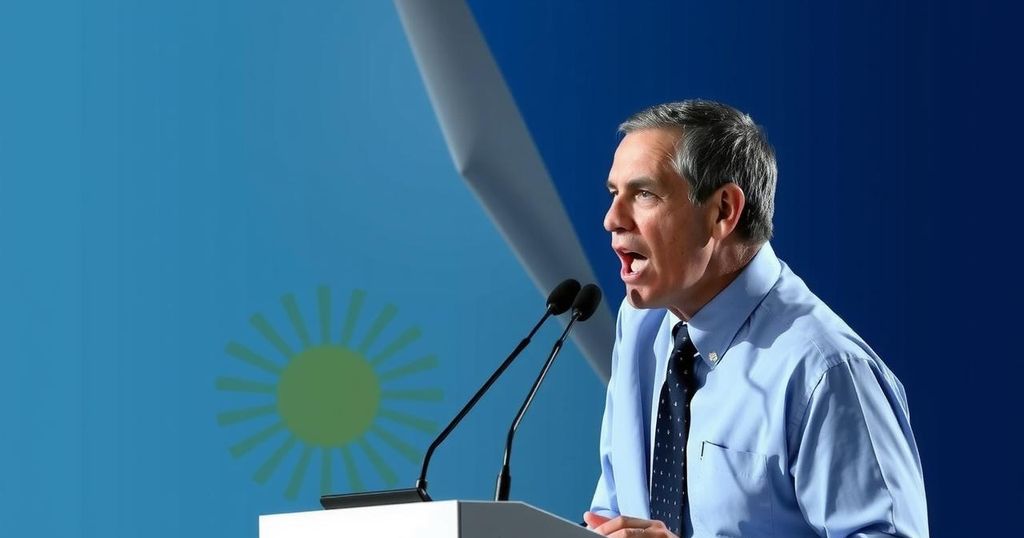Uruguay’s Presidential Election Progresses to Runoff

Uruguay’s recent presidential election will proceed to a runoff, as neither of the leading candidates attained the necessary 50 percent of the votes. Yamandú Orsi, the center-left former mayor, leads with approximately 42 to 44 percent, while Álvaro Delgado of the center-right coalition follows with 27 to 28 percent. The runoff is scheduled for November 24, 2023.
The presidential election in Uruguay has advanced to a second round following the initial voting results. Yamandú Orsi, a prominent figure from the center-left, garnered the highest support among candidates but did not achieve the necessary majority to secure an outright victory. As of the latest count, Mr. Orsi, a seasoned politician with a background as a two-time mayor and history educator, received between 42 and 44 percent of the vote. His main opponent, Álvaro Delgado, the candidate from the center-right governing coalition and the former chief of staff of the current president, recorded around 27 to 28 percent. Both contenders acknowledged the likelihood of facing one another in a runoff slated for November 24. Mr. Orsi represents the Broad Front alliance, which notably held the presidency from 2005 until 2019, reflecting a growing demand for enhanced social support systems amidst rising living costs in one of Latin America’s more affluent countries. He energized his supporters in Montevideo, expressing determination for the remaining days of the campaign to bolster his chances in the upcoming election.
This article discusses the current political landscape in Uruguay, specifically focusing on the presidential election process, which has resulted in an anticipated runoff round. Yamandú Orsi’s performance as the leading candidate indicates a shift in voter sentiment towards left-leaning policies, indicative of the broader trends in Latin America where social safety net programs have gained traction among the electorate. The significance of this election also lies in the legacy of the Broad Front alliance, previously in power for several years, which influences the current political discourse surrounding social welfare and governance.
In conclusion, Uruguay’s presidential election has led to a runoff due to neither candidate achieving the required majority. The contest between Yamandú Orsi and Álvaro Delgado reflects shifting political sentiments in the country, with implications for future governance and social policy direction. Both candidates’ preparations for the November 24 runoff will be crucial as they aim to secure the presidency in a highly competitive political environment.
Original Source: www.nytimes.com








